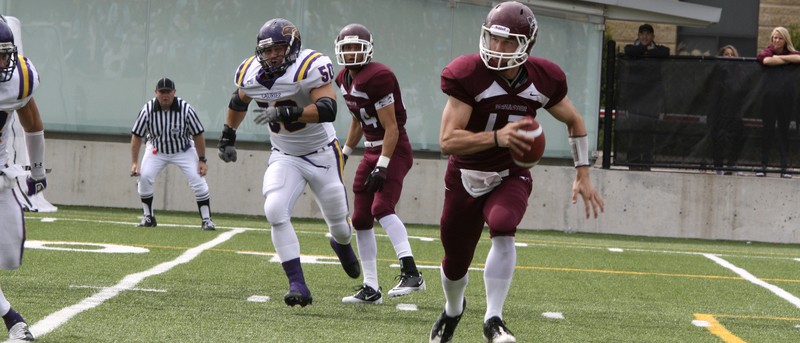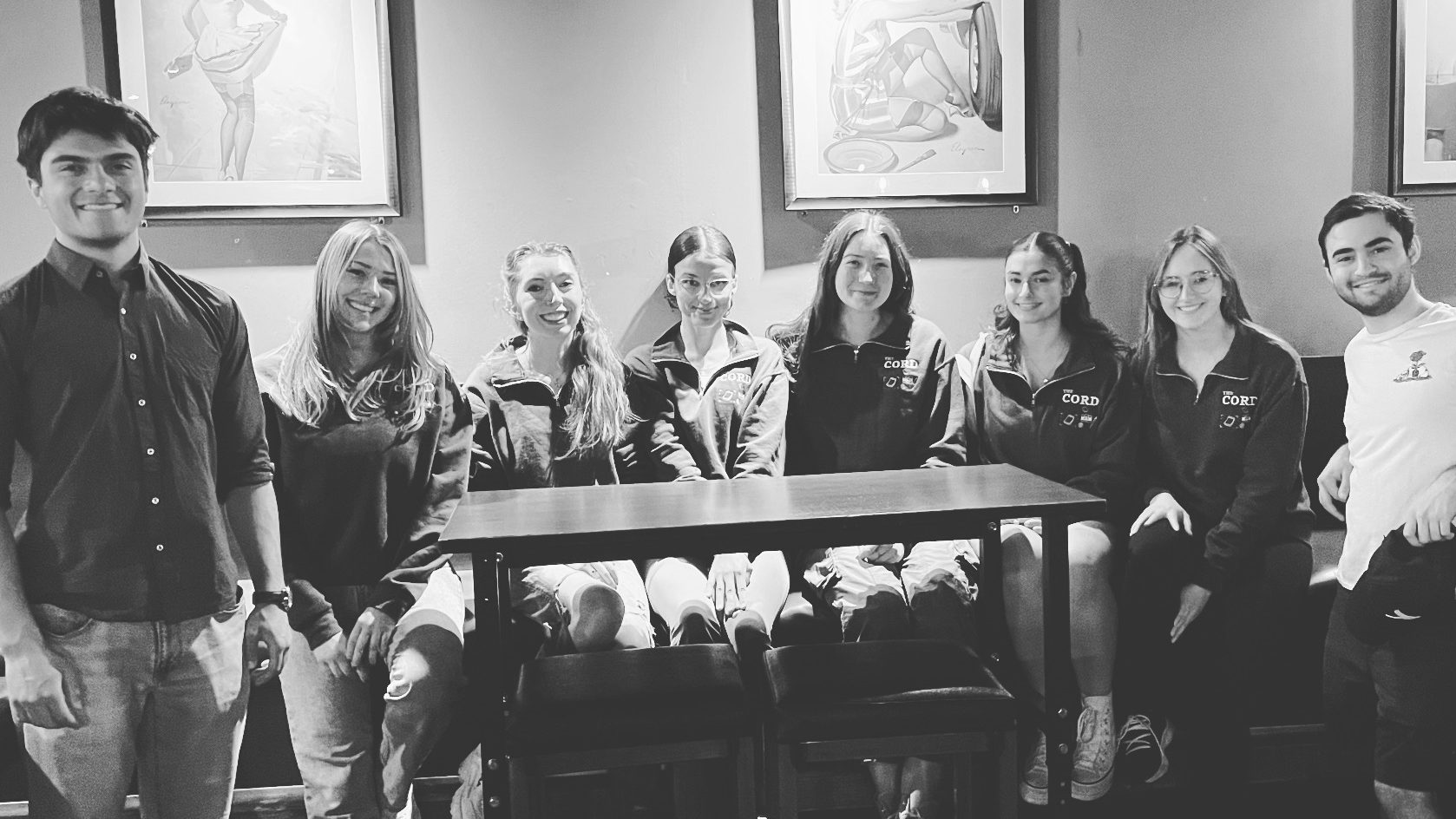
“There is an absence of representation and role models for Black and Indigenous students and leaders across the portfolio.”
Laurier’s Vvice-Ppresident of Sstudent Aaffairs, Dr. Ivan Joseph is in a unique position, having held many different positions throughout OUA schools in his decades-long career. Before joining Laurier this past summer, Dr. Joseph was the Vice-Provost of Student Affairs at Dalhousie University, however, he was primarily involved with the OUA prior to taking a more administrative role within the schools.
Joseph has worked in sports departments across North America over the past 20 years. He served as the men’s soccer coach at Graceland University in Iowa before becoming the athletic director at Ryerson University for 10 years, while also coaching their men’s and women’s soccer teams for several seasons.
As athletic director, Joseph brought Ryerson’s athletics to new heights, achieving great success and improving the old Maple Leaf Gardens where the Rams play many of their home games.
“You know, I’m kind of uniquely positioned in the fact that I was a coach, I’m a former director of athletics, current Vice-President and also one of the few people of colour or of a racialized identity in this space in the Canadian higher education field,” he said.
Being in this position has helped Dr. Joseph focus on some of the diversity issues that the OUA and university sports across Canada have not addressed. This past summer, Joseph was the lead researcher of an investigate review into McMaster University’s Ddepartment of Aathletics after reports of racism were shared to social media by former student-athletes.
“I was approached by my colleague Sean [Van Koughnett] about potentially looking into some concerns that were tweeted out loud,” Joseph said.
He stressed that Van Koughnett, who serves as the Dean of Students at McMaster recused the school’s role of involvement and gave Joseph the lead role along with four other members who would serve on a task force.
“They were happy to look at this issue and allowed me to take the lead as the lead reviewer and I was happy to do it for them,” Joseph said.
The report, which was made public last week, concluded that there had been a “clear culture of systemic anti-black racism” that had existed and “continues to exist.” In addition, the report mentioned that the culture had been “harmful” and revealed, “extremely concerning experiences from student-athletes.”
Joseph who was joined on the task force by a current McMaster student and three other administrative members of McMaster who have roles focused on inclusivity. The review dated back to 2010 and took part over a month. Joseph and his team conducted over 70 interviews, with the wide majority of them coming from current student-athletes and alumnus who spent their time in the department.
While taking the lead role, Joseph set out to listen to the experiences of student-athletes and staff and to uncover the truth of the department’s practices.
“You go into it looking to hear people’s stories and to find the truth and the truth reveals what is out there,” he said.
Some of the personal experiences that Joseph heard and examples of racism that led to his conclusion included a “jail-break” themed party where white players dressed as criminals and wore cornrow braids and other examples of derogatory comments or racial slurs being targeted towards black-athletes.
Several students noted mental health issues that impacted them long-term while one Black student-athlete explained an instance where his coach called him “King Kong” or “Donkey Kong.”
Joseph mentions that other examples were more serious but that there was a wide range of issues that impacted the student-athletes differently.
“It was a range. For some people it was a lack of representation, some people it was the lack of opportunities and for some people it was the impact of the behaviour on their mental health.”
The report summarized five primary gaps, focused around the “traumatizing” culture and the negligence of the department to address the issue. The gaps included a lack of leadership focused on creating an inclusive culture, a lack of engagement around racial equity issues and a lack of proactive policies among many other things.
President of McMaster, David Farar issued an apology letter to students, reading, “I am deeply sorry … there are no excuses for the behaviour you endured.”
Farar assures that the school is listening and have implemented a plan to enact the report’s recommendations and eliminate the toxic culture, Dr. Joseph is pleased with the announcement.
“You couldn’t ask for a better response from the university. Clearly, you do not want to be in this situation, but when you do a review like this, you do it for a couple of reasons. You want to find the truth and then you want to move towards reconciliation.”
“That typically starts with an acknowledgment of the wrongs that we’re done and an apology. And they did all of those things that allow people to move forward,” Joseph added.
While his work on that review will surely bring a good change to McMaster, Joseph is committed to change across the OUA. He is also a member of the newly formed OUA BBI task force which is focused on making positive changes to increase diversity and representation across the province’s sports departments.
“I am happy to be a part of it because there needed to be change in the OUA. I’m happy that they have seen the lack of representation and diversity as a problem and are willing to have a conversation,” he said.
Dr. Joseph was not too shy to mention some of his thoughts when he was an athletic director at Ryerson. He notes that he was the only person of colour holding that position in the OUA at that time, while also stressing how important of a job it was for him to try and make sure that there was representation within the coaches he hired and student-athletes he recruited.
“That’s one voice at one institution. But I think more people needed to be doing that,” Joseph said.
The BBI task force just recently released a powerful presentation showing the current lack of diversity currently in the OUA. While there are 11 white football head coaches and 20 white athletic directors across the province’s sports departments, there is not a single Black or Indigenous head coach or athletic director.
This issue is prevalent across Ontario and Joseph did not leave Laurier out of his discussion. “We look at Laurier and one of the things that are loud and clear that one of your football athletes said was that Laurier has the largest percentage of Black football athletes on their football team, yet they’re one of the few programs that doesn’t have a single Black coach on their staff and that’s the problem.”
There is a lot more to be done about diversity and equality in the OUA and USPORTS in general, but Dr. Joseph continues his outstanding work, striving to eliminate the issue of systemic racism in sports. With his experience, intelligence and continued work with the OUA BBI task force, Dr. Joseph has the OUA on the right path towards a more inclusive playing field.








Leave a Reply
You must be logged in to post a comment.